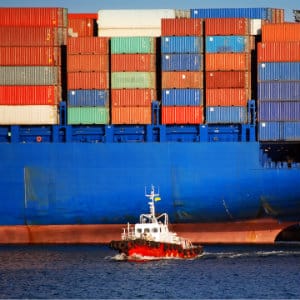If you or a loved one has been seriously injured or killed in an offshore or maritime work accident, you may have many questions:
Contact one of our experienced maritime lawyers today for answers to these and any other questions you may have about your legal rights following an offshore injury. Consultations are completely free of cost and obligation.
Working on or near the water can be dangerous and physically demanding. It’s common for maritime and offshore employees to suffer serious injuries on the job, which can impair an employee’s ability to continue working or enjoy activities outside of work.
Law firms throughout the nation have taken notice of this growing trend and increased their outreach to maritime workers. You may have become aware of your right to financial compensation after passing a billboard advertisement on a local road or highway.
These billboards and other advertisements do a good job of notifying maritime workers of their right to financial compensation after an injury. Because of the complex nature of maritime law, many of these workers may be unaware of their rights until they see a law firm’s advertisement.
While a billboard serves as a good notification for maritime workers, it’s up to you to take your own legal action and seek additional answers with help from our offshore injury law firm.

While some occupational hazards in maritime settings may be unavoidable, many offshore injuries are the result of human error or negligence. If you or a loved one suffered a serious injury while working aboard or in service of a vessel on navigable waters, you’re likely covered under the Jones Act. Unlike most other work injury systems, this Act allows injured employees to hold their employers liable if negligence was a factor in their injury.
Maritime workers on docks, ports, piers, harbors, and other settings near the water are usually covered under the Longshore and Harbor Workers’ Compensation Act. These benefits do not take negligence into account but can help provide financial compensation for expenses related to your injury, including lost wages and medical bills.
Regardless of which Act you fall under, as an injured maritime worker, you’re entitled to financial compensation. However, it often requires legal assistance in order to secure the financial compensation you and your family need and deserve. To find out more about your options after a maritime or offshore work injury, contact us today for a free initial consultation with an experienced maritime lawyer.
Maritime work environments are full of potential hazards which could cause an injury. Employers and vessel owners have a duty to keep these work environments free of reasonably foreseeable hazards. A failure to do so could qualify as negligence, which would be grounds for a Jones Act claim.
Injuries that frequently require financial compensation under the Jones Act include:
Regardless of the nature of your injury, you are entitled to financial compensation as an injured maritime worker. However, legal counsel is often necessary in order to navigate the complex process of claiming your benefits.
Workers covered under the Jones Act may be eligible for financial compensation through one or more of the following routes:
Because Jones Act claims involve negligence and complex litigation, it’s usually necessary to speak with a lawyer who has experience with maritime work injury cases.
Maritime workers who do not meet the qualifications of the Jones Act are likely covered by the Longshore and Harbor Workers’ Compensation Act (LHWCA), instead. A qualified maritime lawyer can also help you with an LHWCA claim.
Maritime law is made up of several complex legal concepts. Your right to financial compensation can be influenced by where your injury occurred, your work environment, and other complex factors. Additionally, these cases often involve powerful employers and insurance companies with skilled lawyers. In order to give yourself the best chance of securing compensation, it’s usually necessary to have your own skilled lawyer who knows how to protect the rights of injured maritime workers.
Because of these complexities, many injury lawyers are not qualified to handle maritime injury cases. When looking for a lawyer, you should seek out someone who specializes in this field of law. To speak with an experienced maritime lawyer, contact us today for a free consultation.
Continue Reading:

 info@legalherald.com
info@legalherald.com